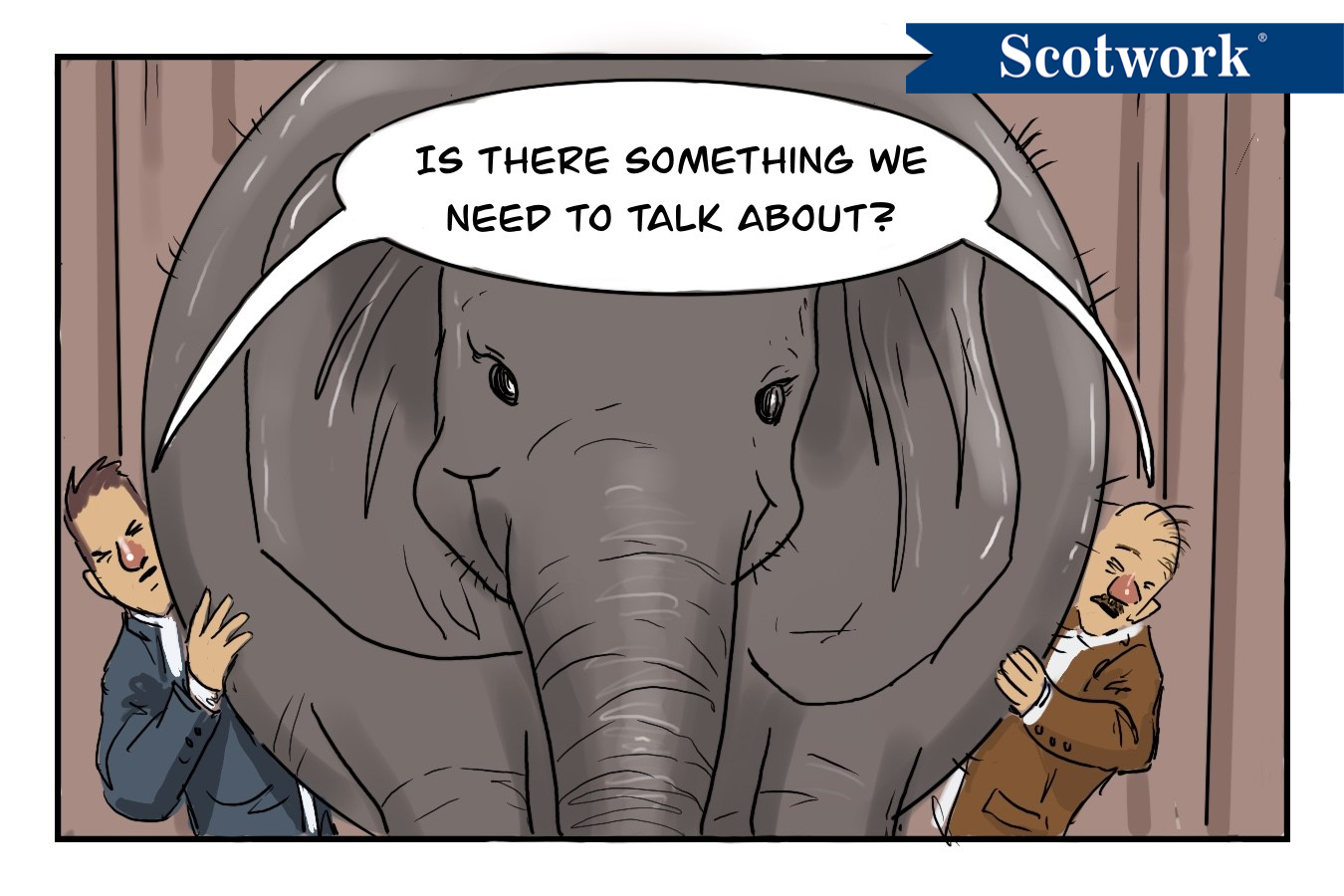It’s contract renewal season! The stakes are high; predictability is critical to business planning, whether you buy or sell. Renewals help ensure the resources needed to run your business are in place, and ongoing business relationships are sometimes the most crucial way to ensure consistency.
With all that on the line, playing it safe and working through an approval process without drawing unnecessary attention is tempting. So, what do you do when you must address the elephant in the room? Remember that there are two sides to every issue — or elephant — and you’ll need to consider both of them.
I took over managing a long-standing account when I started a new role at a marketing agency. The assignment was challenging but frequently satisfying: The account was valuable to the agency, I enjoyed working with the key contact, and we were proud of our work. In time, the client relied on my team more fully (good news for an account leader!) but, as a result, was using more hours than had been accounted for in the staffing plan (not good news).
In agency terminology, the account was now “running hot.” I needed to address that in the annual agreement, or my agency would lose money on the renewal. My path forward seemed simple: I let my client know that there would be an increase in the agency fees in our upcoming agreement. My client let me know she expected a “flat” renewal, with no increase to the overall cost. Suddenly, I needed to address the elephant in the room.
Thankfully, I had a negotiation coach who reminded me of the value my team brought. The elephant wasn’t solely mine — I shared it with the client! While the elephant had two sides, it was on me to shape the negotiation so my client and I could address it together.
My coach helped me identify 3 techniques to use:
- Be direct. Prepare by putting the situation into words and practice explaining why it’s an issue. The other side may not perceive the problem in the same way. My client didn’t even think about time overages: She perceived the agency team as part of her department, and time tracking had not previously been part of the relationship.
- Get it out early. Happily, I’d done something right when I let my client know there was an issue, so it made sense when I maintained we needed to work through it. It pays to get thorny problems or bad news on the table right away. Revealing a must-address item late in a negotiation can derail momentum and damage the trust built during a deal.
- Prepare for the person. Consider your knowledge of who you need to work with. My client used long silences in meetings to get others to talk and make concessions. I rehearsed asking for a response and being quiet during uncomfortable (for me, anyway) pauses.
Although the process was sometimes tense, my negotiation coach helped me guide the process to a place where the client participated in working through our renewal and its issues together. In fact, we devised a time-tracking system that identified where hours were most likely to run over and implemented a communication plan that kept hours from spiraling out of control. The process served both teams (and both sides of our elephant) very well.
We Can Help You Get Your Client to Collaborate with You on Your Contract Renewal.
The elephant in the room isn’t just yours. Rely on Scotwork’s nearly 50 years of experience for negotiation coaching to help get your renewal to a place where your clients collaborate with you.

